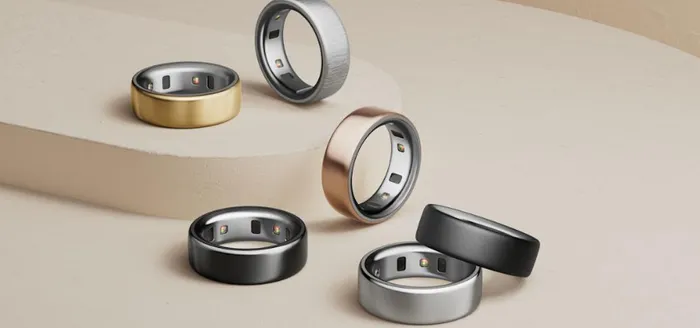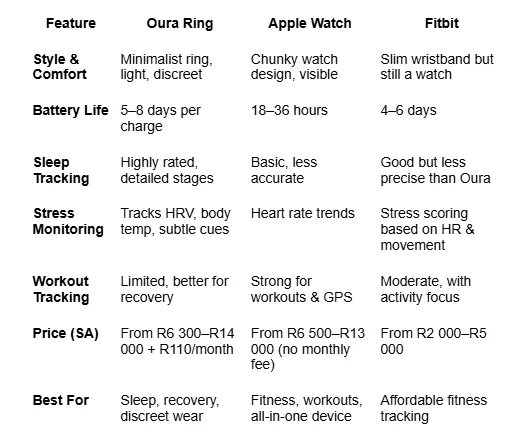The smart ring that tracks over 20 biometrics

For those who don’t like sleeping with bulky devices strapped to their wrists, the Oura ring is a good option.
Image: Oura Rings
It looks like a minimalist piece of jewellery, but don’t be fooled - the Oura ring is more than a pretty accessory.
Worn by celebrities like Prince Harry, Jennifer Aniston, and Kim Kardashian, this discreet titanium band has become one of the most talked-about wellness gadgets in recent years.
From bling to biofeedback
Wellness tech has often come in the form of chunky watches and fitness trackers, but Oura took a different approach.
The Finnish-designed smart ring slips easily onto your finger and quietly collects health data without blinking screens or buzzing reminders.
Inside the sleek shell sit infrared sensors, temperature monitors and motion detectors, which together track over 20 biometrics around the clock.
That includes your heart rate, breathing, skin temperature, sleep cycles and even subtle changes in stress.
The idea? To give you a daily snapshot of how your body is coping, so you know when to push and when to pause.
Focus on sleep and stress
Sleep is where Oura has really earned its reputation. Many reviewers praise its accuracy, especially compared with wrist wearables.
The ring not only records how long you sleep but also breaks down the quality of your rest - showing light, deep and REM stages.
This has helped users understand why they may wake up groggy despite eight hours in bed.
Beyond sleep, the ring nudges wearers to recognise stress. A dip in heart-rate variability, for instance, may signal that your body is under pressure, prompting you to take a breather or go easy on your next workout.
Some users say the ring has encouraged them to meditate more, schedule downtime, and be more mindful of how daily habits affect their recovery.
Style meets tech
Unlike most wearables, the Oura Ring doesn’t scream “fitness tracker”. It comes in classic shades of black, silver, gold and stealth and titanium and has the same clean lines as a designer band.
It’s also waterproof, weighs just a few grams, and holds a charge for up to eight days.
For those who don’t like sleeping with bulky devices strapped to their wrists, this subtle design is part of the appeal.

How the Oura Ring compares against Apple Watch or Fitbit.
Image: AI
The cost
South Africans can get their hands on the Oura Ring through local importers, though it isn’t cheap. Prices start at around R6,300 for the basic finish and climb to over R14,000 for premium designs.
On top of the hardware, there’s a monthly membership of about R110, which unlocks the app’s more detailed insights.
That’s a serious investment compared with the likes of Fitbit or Apple Watch, but fans argue it’s worth it for the accuracy and simplicity.
As one long-time user explained in a review, the ring “helped me understand my body’s patterns in a way that no other wearable did.”
The Oura Ring isn’t a magic fix, and it won’t put you to bed on time or stop you from overworking. But by shining a light on what’s happening beneath the surface, it gives you the kind of knowledge that makes change possible.
IOL Lifestyle
Related Topics: